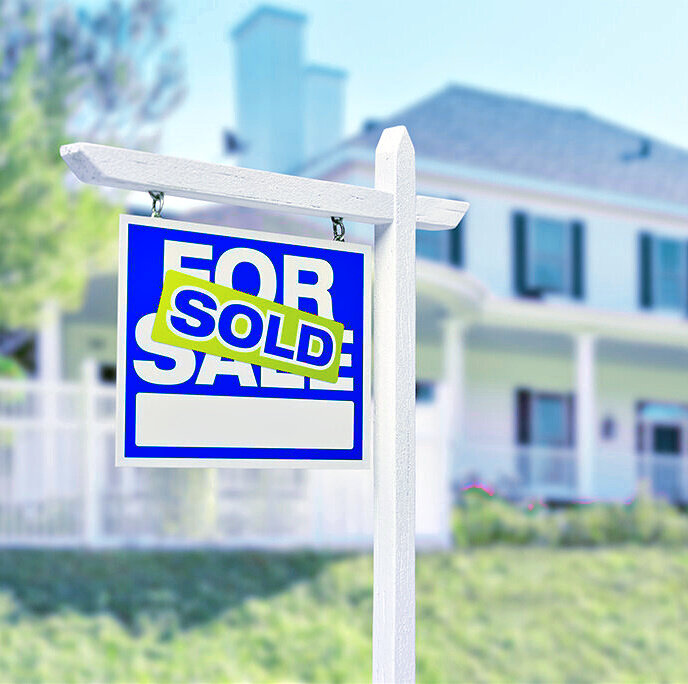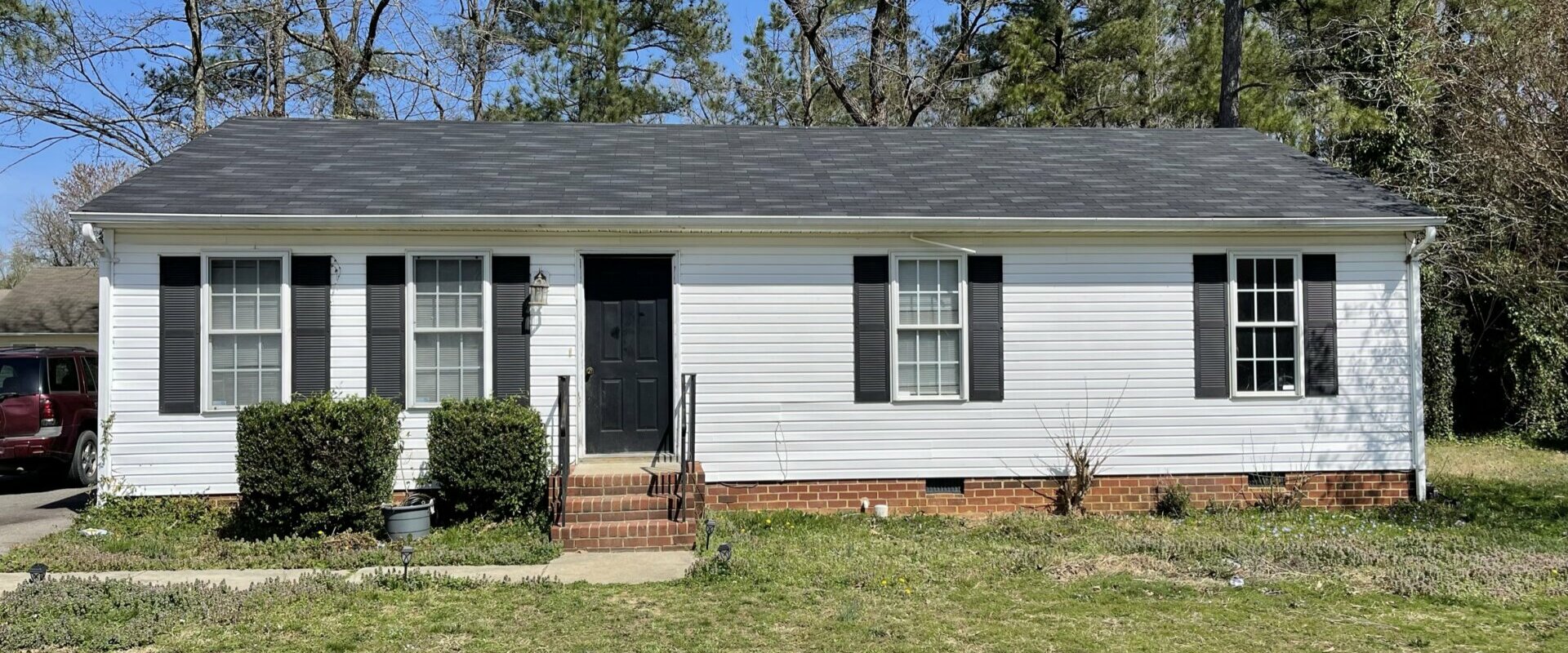Understanding Closing Costs In Virginia
This is especially true when it comes to figuring out who is responsible for paying the closing costs in Virginia. Finding out everything you can about closing costs is important if you want to avoid being ripped off when you sell your Virginia home.
Title insurance, appraisal, attorney’s fees, survey fees, transfer taxes, and filing fees are some of the things that are usually part of closing costs. Most of these closing costs are paid for by the seller in Virginia. The only ones that are usually paid for by both sides are title insurance and attorney’s fees.
Before you sign a contract, making sure everyone knows what is expected of them can help the selling process go more smoothly. It’s also important to know about any extra costs that come up during the closing process, like property taxes or HOA dues that are divided.
Working with an experienced real estate agent can be a big help, guiding you through the process, answering your questions, and ensuring the paperwork is handled correctly. When selling a home in Virginia, it’s important to understand all the closing costs involved, including who pays the HOA fees at closing, so take time to research and be prepared.
Table Of Contents
1. Understanding Closing Costs In Virginia
2. Exploring Who Usually Pays Closing Costs In Virginia
3. Finding Local Real Estate Agents For Assistance
4. Common Seller Closing Costs In Virginia: Examples And Averages
5. Overview Of Buyer And Seller Responsibilities For Closing Costs In Virginia
6. Comparing Types Of Mortgages And Their Impact On Closing Costs In Virginia
7. Does Seller Pay Closing Costs In Virginia?
Exploring Who Usually Pays Closing Costs In Virginia

When selling a house in Virginia, understanding who is responsible for covering closing costs is essential for both the buyer and the seller. Closing costs are fees associated with the sale of a property.
They can include attorney fees, title search fees, survey costs, transfer taxes, recording fees, and more. In Virginia, the seller typically pays these closing costs unless otherwise negotiated by the buyer and seller before entering into a sales contract.
For example, homebuyers sometimes offer to pay a portion of the closing costs if the seller agrees to lower their asking price. Ultimately, who pays closing costs must be agreed upon ahead of time by both parties for everything to move forward smoothly during the transaction.
Cost Of Closing And Ways To Reduce Them In Virginia
When you sell a house in Virginia, it’s important to know about closing costs and how to lower them. The transfer tax is one of the most important parts of the closing costs. The seller usually pays it, but sometimes both parties share the cost.
In addition, a number of fees need to be paid before the closing, such as lender-required fees and title insurance fees. In Virginia, homeowners may also have to pay for things like homeowner’s insurance, property taxes, and interest payments they already agreed to.
You can lower or eliminate many of these costs by asking the buyer to help pay them or getting a lower sale price. Getting certain tax breaks or credits could also help people save money on their closing costs.
Finally, before signing a contract to sell your home in Virginia, you should list all the costs involved and plan ahead.
Finding Local Real Estate Agents For Assistance

When learning about closing costs in Virginia, local real estate agents are very helpful. They know everything about the local market and the rules and laws that govern buying and selling homes.
Real estate agents can help you figure out what fees are involved in closing on a house and who is responsible for paying them. They can also help buyers figure out what problems might come up during the sale of their home and give them tips on avoiding making mistakes that cost a lot of money.
In addition, agents can offer ways to keep costs low while ensuring buyers get a good deal. When dealing with Virginia’s complicated closing costs, it’s often best to work with an experienced agent.
Common Seller Closing Costs In Virginia: Examples And Averages
In Virginia, the seller usually pays for several closing costs, which can vary depending on the circumstances. Title insurance, deed recording fees, real estate agent fees, and transfer taxes are some of the sellers’ most common closing costs.
Title insurance protects buyers and lenders from problems related to property. When someone sells or gives away their home, they usually must pay the local government deed recording fees.
Commissions for real estate agents are usually split between the buyer’s and seller’s agents. They are based on a share of the home’s sale price. When someone sells or gives away a piece of land, transfer taxes are paid to the state and local governments.
In Virginia, these closing fees can amount to about 3 to 6 percent of the house’s price.
Calculating The Total Closing Cost With A Calculator
Many Virginia buyers find closing costs hard to understand and scary. To get through the closing costs, you need to know exactly what they are, who pays them, and how to determine the total amount.
A good way to get a rough idea of the costs of selling a house is to use a tool to determine the total closing costs. Before you use an online or paper tool, make sure you know everything you need to know about your home, like how much it’s worth on the market, how much you owe on your loan, and how much you owe in taxes.
Once you have all of this information, you can more accurately calculate closing costs. These include transfer taxes, title insurance fees, recording fees, attorney fees, prepaid homeowner’s insurance, and escrow reserves for property taxes and mortgage interest payments. Depending on the rules in the area and the agreements made by both parties, many of these closing fees are paid for by either the buyer or the seller.
It is important to remember that some of these costs may not seem like much initially, but they can add up quickly. Knowing how to determine your total closing costs can help ensure your Virginia home sale goes smoothly.
Strategies For Lowering Closing Costs In Virginia
When selling a house in Virginia, the buyer and the seller need to know the closing costs. State rules usually say that the closing costs should be split between the parties.
When you sell your Virginia home, you can lower your closing costs by getting quotes from several title insurance companies and comparing their rates.
On top of that, you can ask the buyer to pay some closing costs, like transfer taxes or filing fees. If you already have a mortgage on your home, you can also try to work out a deal with your lender. Some lenders may be willing to lower your interest rates or waive certain fees to help you save money on closing costs.
It’s also important to know that if you sell a house “as is,” the buyer usually pays for any repairs or upkeep needed before they move in. Lastly, hiring a real estate lawyer who can help you through the process and answer any questions you have about Virginia’s closing costs laws or papers might be a good idea.
Why Are Closing Costs Important?

Virginians who want to sell their homes need to pay closing costs. They can add up quickly, so you should think about them when you set the price of your home or talk to a buyer.
Closing costs include many types of fees, such as title insurance, attorney’s fees, recording fees, and paper stamps. All of these fees must be paid before the sale goes through.
If you know ahead of time what your closing costs will be, you can make smarter choices about how much to ask for your home and how much you can afford to pay. Also, knowing the closing costs of your sale can help you deal better with buyers and ensure that everyone knows their financial responsibilities during the transaction.
Overview Of Buyer And Seller Responsibilities For Closing Costs In Virginia
When selling a house in Virginia, both the buyer and the seller are responsible for knowing what the closing costs are. Most of the closing costs, like loan application fees, title searches, survey fees, and other fees that come with getting a mortgage, are usually paid for by the buyer.
A lot of the time, the seller pays the transfer taxes, recording fees, attorney’s fees, and other real estate agent profits. It’s important to remember that the two people involved in the sale can discuss some of these costs, so it’s important to know which ones can be transferred from one person to the other.
Also, it’s important to remember to include any credits or prepaid items, such as homeowner’s insurance or property taxes, that are due at closing. These should be added to the total and used to determine who will pay what at closing.
The Impact Of Lowering Your Closing Costs On A Sale Price Negotiation
There are important things to know about Virginia closing costs and who pays them when you are discussing the sale of a house. Closing costs can have a big effect on the final price of a home, so it’s important to think about them when you’re bargaining.
Getting the closing costs down can help both buyers and sellers. If the fees are lower, buyers may be able to afford more, and if the fees are lower, sellers may get more money. People who are buying or selling a house in Virginia should also think about any taxes that might apply, as these can also change the amount of money that is being traded.
Negotiators should learn as much as they can about closing costs in Virginia before they start negotiating. This will ensure that they are ready and knowledgeable. Figuring out who will pay what fees in the end can make talks go more smoothly for everyone, letting them focus on reaching a deal on a sale price.
Comparing Types Of Mortgages And Their Impact On Closing Costs In Virginia
If you want to sell your house in Virginia, you should know about the different types of mortgages that can change the closing costs. When it comes to closing costs, the different types of mortgages will have different effects on the case.
For example, the interest rate on an adjustable-rate mortgage (ARM) is usually lower than the interest rate on a fixed-rate mortgage (FRM). However, the interest rate and payment amount can change over time, which could make the closing costs higher. A FRM, on the other hand, has higher interest rates than an ARM, but the payments and interest rates stay the same for the life of the loan. This may help keep closing costs cheap.
Another benefit of FHA loans is that they let you buy a home with less money down and lower closing costs than standard loans. VA loans are also available to military members and veterans who want to buy a home in Virginia. There is no need for a down payment or a funding fee, but there are some limits on these loans.
You should think about all of these things when choosing the type of mortgage that will work best for you and your situation. This way, you’ll know how it will affect your closing costs in Virginia when you sell your home.
Limiting The Impact Of Taxes On Your Total Closing Cost Amount

Understanding the impact of taxes on the total closing cost amount when selling a house in Virginia is critical to ensuring that you are prepared for the costs associated with the sale. Depending on your circumstances, there may be ways to minimize or limit the taxes you owe when selling a home.
For instance, the Homeowners’ Tax Credit Program lets you get up to $10,000 in tax breaks if you are a homeowner who has owned and lived in their home as their main residence for at least two of the last five years. Additionally, if you decide to use a real estate agent to assist with the sale, they might be able to help you find any relevant tax credits or deductions.
Another thing to keep in mind is that, based on where you live, your sale may come with extra taxes and fees. If you are selling a house in Virginia, you should talk to a real estate agent or financial advisor with a lot of knowledge about how to keep taxes from adding too much to your closing costs.
Steps To Take When Selling A Home And Paying All Appropriate Fees
It’s important to know what the closing costs are in Virginia before you sell your house. Anybody who is buying or selling a home has to pay certain fees before the close date. These fees are called closing costs.
Lawyer fees, title insurance, recording fees, transfer taxes, and escrow payments are some of the most common closing costs for sellers. Depending on the type of loan the buyer takes out, there may also be lender-related fees when selling a home in Virginia.
Before you sign a contract, you should talk about who will pay each fee. This way, both sides know what their financial responsibilities are. When choosing an attorney to handle the sale of your home, make sure they have experience with Virginia real estate deals. This way, they can give you correct information about the laws and rules in that state.
Also, it’s important to read all papers carefully before signing anything and to ask questions if something doesn’t make sense. By doing these things, you can help make sure you pay all the right fees when you sell your Virginia home.
Does Seller Pay Closing Costs In Virginia?

It is important to know who pays the closing costs when you sell a house in Virginia. Most of the time, the person selling the house will have to pay some of the closing costs.
Title search fees, transfer taxes, and settlement services fees are some of these costs. There are also things sellers should know about closing costs: if there are any liens or judgments against the property, the buyers may have to pay more money.
Additionally, other costs may be associated with selling a home in Virginia, such as prorated taxes and prepaid items like homeowner’s insurance and HOA dues. Although the buyer typically pays for their closing costs, sellers should always consider who is responsible for paying these various fees before signing any agreements during the sale process.
Who Pays Transfer Tax In Virginia?
When a home is sold in Virginia, the person selling it pays the transfer taxes. Different places have different property tax rates, which can be anywhere from 1% to 2%. Transaction taxes may need to be paid by the buyer in some cases, like when a property is being moved into a trust. Many places also charge a transfer tax, which is paid for by the sale. Before you sell your Virginia home, you need to know what the closing costs will be so there are no surprises on the day of the close.
Additional Resources To Help Virginia Homeowners
Get Your Cash Offer Now! 💰
We buy houses in ANY CONDITION in Richmond. There are no commissions or fees and no obligation whatsoever. Start below by giving us a bit of information about your property…

